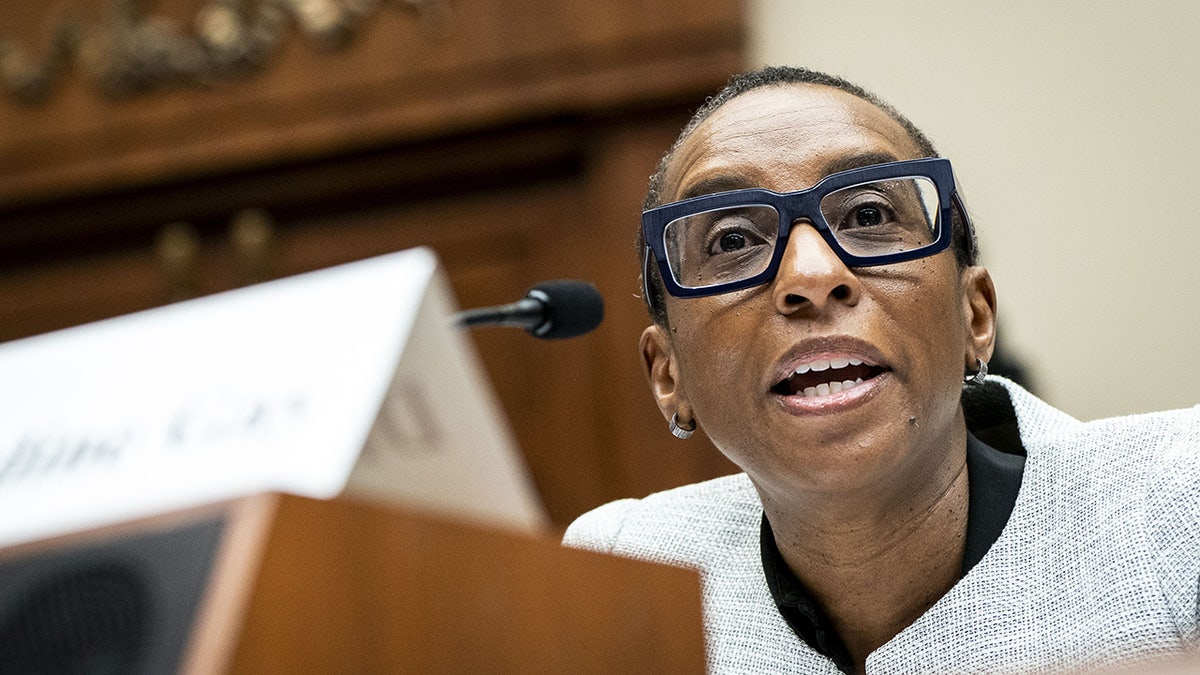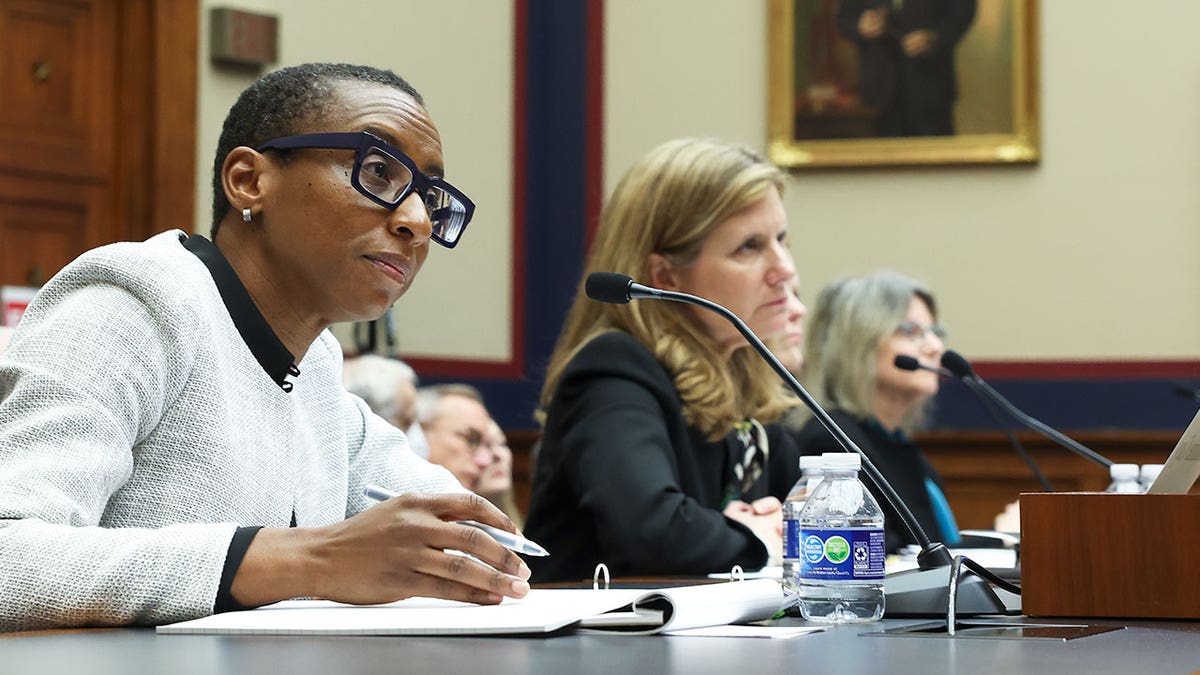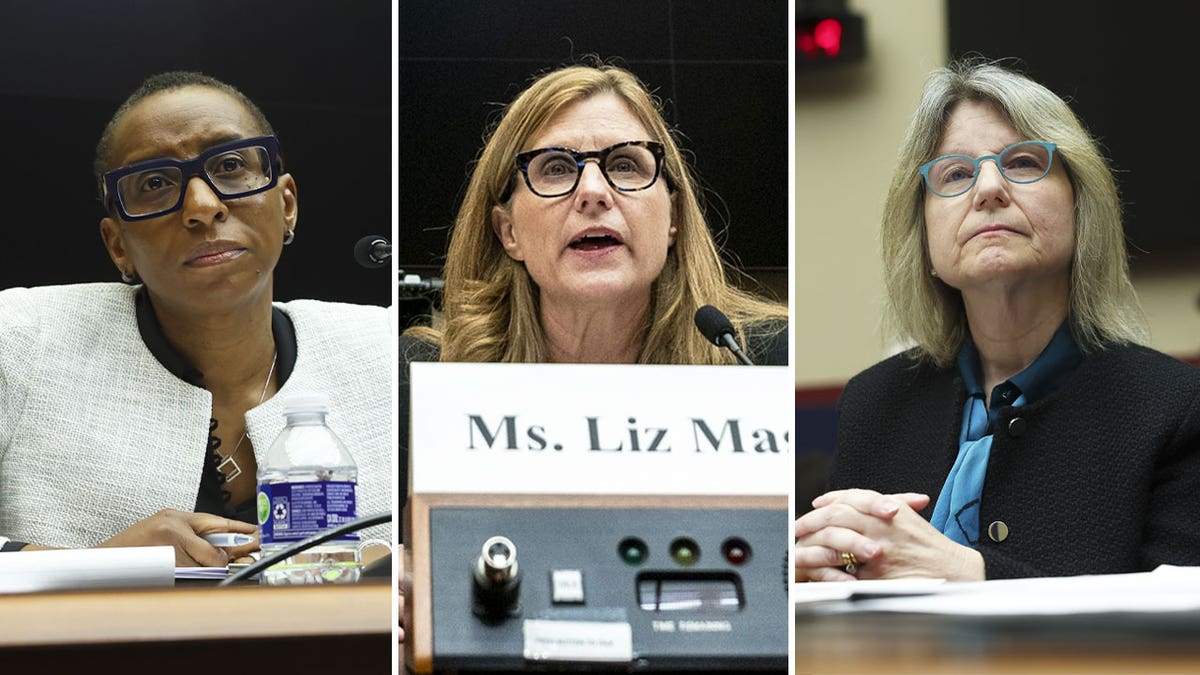Jewish students sue Harvard University for discrimination: Our last course of action
Harvard University graduate student Shabbos Kestenbaum joined Fox & Friends First to discuss why he filed suit against the school and what he hopes to gain from the legal proceedings.
Sexism motivated the resignations of University of Pennsylvania president Elizabeth Magill and Harvard president Claudine Gay, several professors argued Sunday.
The New York Times’ report "The Campus Wars Aren’t About Gender … Are They?" interviewed multiple female professors and university employees on the controversies surrounding Magill and Gay as well as Sally Kornbluth following their congressional testimonies in December. At the time, the women came under fire for avoiding the question of whether calling for the genocide of Jews violated their campus codes of conduct.
"It depends on the context," Gay responded.
Though many called for their resignations following their comments, some faculty members suggested their gender was also a factor.

Gay's comments that it "depends on the context" whether calling for the genocide of Jews violated Harvard's code of conduct caused controversy. (Haiyun Jiang/Bloomberg via Getty Images)
THE WASHINGTON POST CALLS ON UNIVERSITIES TO 'LEARN' FROM HARVARD, STOP TAKING SIDES IN CULTURE WARS
"Four women presidents, all new in their roles, far too new to have shaped the culture on their campuses, called before Congress? Of course there’s a pattern," Dr. Nancy Andrews, first female dean of Duke Medical School, said. "The question is, What’s the agenda? Is it to take down women leaders? To attack elite universities through a perceived vulnerability? To further a political purpose?"
Law professor Nancy Gertner compared the situation to women being denied tenure in the 1980s and 90s, claiming that women were held to a higher standard.
"Had there been three men at that table," Gertner said, "it would not have gone from ‘bad performance’ to ‘you’re not qualified.’"
Others explained that there has been stricter scrutiny of women since the past school year has had "more female leaders than ever in higher education."
"This is a momentous change in and of itself," Daphna Shohamy, a neuroscientist and director of the Zuckerman Mind Brain Behavior Institute at Columbia said. "Of course, we would expect that women, like all leaders, be held to the highest standards."

Female educators and professors suggested that biases against women were factors in scrutiny against the female presidents. (Kevin Dietsch/Getty Images)
She added, "It’s striking that the only leaders that were condemned to this degree were women. How do we know how much of this is simple accountability and how much is the effect of the same biases that held women back from leadership positions for so long? At the moment, I think it is difficult to disentangle these issues."
The article also had arguments that these biases could be setting women up to fail as they attain higher positions. Some claimed that this was why these university presidents were targeted.
"It’s not clear whether they’re selected because it’s a difficult time and people think women can make it better when things are bad, or if women are really set up, inadvertently or advertently," New York University emerita professor Madeline Heilman.
"[I]f they both start well and a man does poorly, people offer excuses and other reasons before they see it as indicative of what he’s like. For a woman, it fits into the stereotype of not being qualified. What is seen as a mistake for men is a lethal error for a woman," she added.

Though Gay and Magill have resigned, Kornbluth has not. (Getty Images)
None of the experts cited in the piece referenced the presidents’ controversial comments. Though Gay and Magill’s resignations were highlighted, Kornbluth, who also testified at the same committee, has not resigned.

